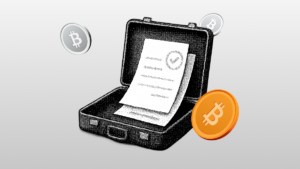
Ideally, a cryptocurrency scam would be caught, the perpetrators put away, and that would be the end of it. Unfortunately, sometimes a scam is revealed and those behind it
As a result, familiarising yourself with cryptocurrency scams is one of the best ways to protect yourself.
Here, we’ll be looking at a scam called Bitcoin Aussie System, a cryptocurrency scam revealed earlier this year. Revealed, that is, after impacting a number of prominent Australian celebrities.
So is Bitcoin Aussie System a scam?
How Did It Start?
It is 2017. The world is waking up to Bitcoin as the cryptocurrency reaches new heights. Everyone wants a part of it but most people still don’t really understand it. Bitcoin itself feels like a get-rich-quick scheme and the market is ripe for scammers.
Users scrolling through social media sites like Facebook and Twitter see Bitcoin every day. But suddenly they see new ads for new tools and platforms. The ads feature the smiling faces of various celebs, prominent entrepreneurs and other influential people. Users in the US see Bill Gates and Elon Musk. In the UK it’s Richard Branson. In New Zealand, it’s morning talk show host Daniel Faitaua. Aussies have been targeted from the project Waleed Aly and Karl Stefanovic the Today Show host.
How Does it Work?
The exact quotes change in each picture. However, they all claim to be endorsements from the individual who made a profit in minutes. You can too, they say. Just click on the link and give them your name and information and wire them some money. Naturally, the money simply vanishes.
Of course, the quotes are fabricated and the images are any of the thousands that can come up in any web search.
In fact, not only celebrities are used. Motivational speakers and spokespeople often have pictures of themselves giving addresses that they use to find work. These too are taken and used without permission. The people in the photo are given new names and identities so that fraudsters can make them instant millionaires. Of course, you haven’t heard of them or seen them before – they weren’t rich until they used the service!
The ads only appear in countries that are perceived to be wealthy but not financially educated.
So, how did the fraudsters become so well-versed in cryptocurrency? They didn’t need to. This scam is much older than cryptocurrency and has been used to sell things like fake cosmetics for ages. Because the “initial investment” is paid in fiat, the fraudsters don’t need to know anything about crypto themselves.
Where Does It End?
Some of the first people to become aware are the celebrities. Between 2017 and 2018, many celebrities report having received angry messages. Apparently, the cryptocurrency services that they had endorsed weren’t paying out. Of course, the celebrities hadn’t actually endorsed any such services.
Most use their platforms to let as many people as possible know not to trust the fraudulent sites. On the morning of 4 December 2018, Daniel Faitaua looks into one of the cameras and warns viewers, If you see these stories, ignore them. If you do click on them, never, never, give away any of your details or any of your money.
In many cases, the sites disappear, only to show up again once fraudsters believe people will fall for them again.
Many of the celebrities blame social media platforms for allowing the false sites to spread. The social media companies are just as surprised as anyone. Facebook, who has been making money off of the ads all along, is slow to respond. They say that they thought the companies were legitimate, and they probably did. Twitter responds by cracking down on Elon Musk impersonators.
Security sites periodically come across the pages. However, by the time they can send up a warning, the fraudsters have moved to a new site.
As of this writing, these scams are still out there. In researching this article, I wasn’t able to find any cases in which the perpetrators were actually caught. Social media, law enforcement, and the general public remain unable to keep up with the simple but fast-moving scam.
What Can You Do?
So, how do you protect yourself? Ignore the ads. Only send money to trusted exchanges, like Buy.Bitcoin.com.au. If you see one of the ads, warn your immediate circle on social media platforms. Your share can be faster and more effective than trying to report the site.
The most important thing is not to lose faith in cryptocurrency because of these scams. Scams appear anywhere that there is an opportunity to make money. Similar scams appear in every industry. Cryptocurrency is just a favoured playing ground because there are still many people who do not understand how it works.



